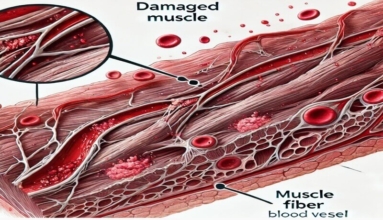Organ failure symptoms
Overview of Organ Failure
What is Organ Failure?
Organ failure occurs when one or more of your vital organs cease to function effectively. This condition can be either gradual (chronic) or sudden (acute). Vital organs are those essential for survival, including the heart, lungs, kidneys, liver, and brain.
When a vital organ begins to fail, life support may be necessary to aid or replace its functions. In some cases, the affected organ can recover, but in others, it may not. If organ failure is irreversible, it can lead to fatal consequences.
Types of Organ Failure
The vital organs that can fail include:
- Liver: Responsible for filtering toxins from your blood and performing hundreds of essential functions. Liver failure can be acute or chronic.
- Kidneys: They filter waste from your blood and regulate fluid and electrolyte balance. Kidney failure can also be acute or chronic.
- Heart: It pumps oxygen-rich blood throughout the body. Acute heart failure is a rapid decline in function, while congestive heart failure is a chronic condition that progresses over time.
- Lungs: Critical for gas exchange, lungs can experience acute or chronic respiratory failure.
- Small Intestine: Absorbs nutrients from food; failure results in malnutrition.
- Brain: Controls the function of all other organs. Degenerative brain diseases can cause chronic brain failure, while acute brain failure can lead to brain death.
When multiple organs fail simultaneously, healthcare providers may refer to this as:
- Multiple organ failure
- Total organ failure
- Multiple organ dysfunction syndrome (MODS)
Understanding Organ Failure
The term “organ failure” might imply that the organ is completely non-functional, but this is only the end stage. Instead, it means that the organ is not performing at full capacity and is failing to execute its essential functions. As an organ’s functionality declines, you will require increased support. Acute organ failure demands urgent care, whereas chronic organ failure often necessitates a long-term management plan.
What Happens During Organ Failure?
Chronic organ failure progresses in stages, typically defined by healthcare providers. While each organ may have slightly different staging, there are generally four or five stages. The final stages indicate that the organ is nearing complete failure. At this point, artificial life support or an organ transplant may be required to sustain life.
Acute organ failure may begin at the end stage or can rapidly progress there, necessitating immediate intervention. Additionally, one failing organ can trigger others to fail in a chain reaction, often following a predictable sequence of events.
Symptoms and Causes
What Does Organ Failure Feel Like?
Common symptoms of organ failure include:
- Weakness, faintness, or fatigue.
- Drowsiness or loss of consciousness.
- Difficulty concentrating or confusion.
- Loss of appetite.
- Nausea and vomiting.
- Fast, shallow breathing.
- Fast or irregular heartbeat.
- Fever and chills.
- Swelling in extremities or abdomen.
- Persistent chest pain or abdominal pain.
Clinical Signs Indicating Organ Failure
Specific clinical signs include:
- A yellow tint to the skin and eyes (jaundice) from liver failure.
- A bluish tint to lips and under fingernails (cyanosis) from respiratory or heart failure.
Common Causes of Organ Failure
Several conditions can lead to organ failure:
- Chronic Diseases: Conditions such as chronic liver disease, chronic kidney disease, and chronic heart disease can progressively damage organs over time.
- Traumatic Injury: Severe injuries can cause acute organ failure. If recovery occurs, the organ may still sustain permanent damage, leading to chronic failure.
- Toxic Injury: Exposure to toxins can cause both acute and chronic organ injury, affecting vital organs.
- Loss of Blood/Oxygen Supply: Insufficient blood flow to an organ can result in hypoxia, potentially leading to organ failure.
Diagnosis and Tests
How is Organ Failure Diagnosed?
Healthcare providers employ specific tests to diagnose organ failure, including:
- Liver function and kidney function tests to measure chemicals in your blood and urine.
- Blood tests for malnutrition, followed by enteroscopy for small intestinal failure diagnosis.
- Echocardiograms to assess heart function.
- Neurocognitive testing and brain scans for diagnosing brain damage.
- Pulmonary function tests to evaluate respiratory function.
- Imaging tests such as ultrasounds or CT scans for detailed views of the organs.
Management and Treatment
How Do Healthcare Providers Treat Organ Failure?
For acute organ failure, healthcare providers offer supportive care, which may include:
- IV fluids.
- Antibiotics.
- Blood transfusions.
- IV nutrition.
- Oxygen therapy or mechanical ventilation.
- Vasopressor medications to improve blood flow.
- Dialysis when necessary.
Treatment for Chronic Organ Failure
Chronic organ failure management may include:
- Diet and lifestyle changes for chronic liver failure, potentially leading to a liver transplant.
- Dialysis for chronic kidney failure, with transplantation as a long-term solution.
- Breathing interventions for chronic respiratory failure, potentially requiring a lung transplant.
- Medications for chronic heart failure and its causes, including surgeries in advanced stages.
- Parenteral nutrition for chronic intestinal failure, possibly followed by intestinal transplantation.
- Medications for symptoms associated with progressive dementia.
Outlook / Prognosis
Can You Recover from Organ Failure?
Some organs can recover from acute organ failure, even when multiple organs are affected. Chronic organ failure may be reversible in early stages if the underlying cause is effectively treated. However, later stages often involve irreversible damage.
A Note from Healthcare Providers
If diagnosed with chronic organ failure, you may have several years to manage your condition. Many therapies can help compensate for failing organs and alleviate symptoms. Some individuals may never progress to the end stages of chronic organ failure, while those in later stages may be candidates for organ transplantation.
Acute organ failure usually results from unexpected illness or injury. It’s challenging to prevent and is considered a medical emergency. Healthcare providers in intensive care units (ICU) will do everything possible to support your body systems while the affected organs attempt to recover.
Request your Appointment by clicking on the picture below.


